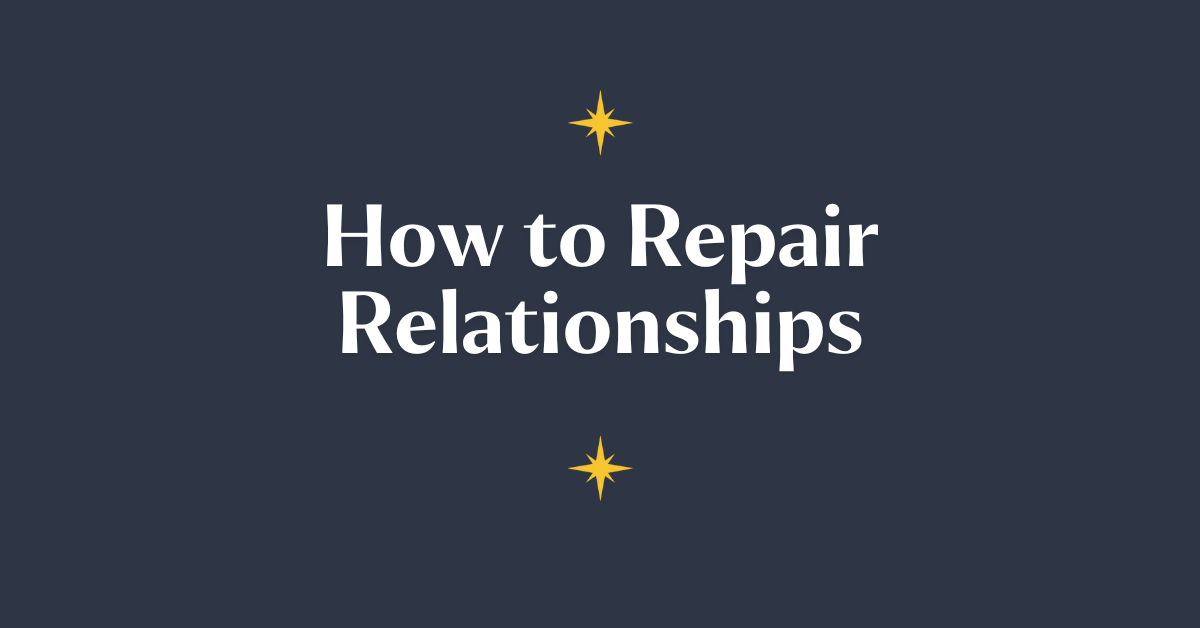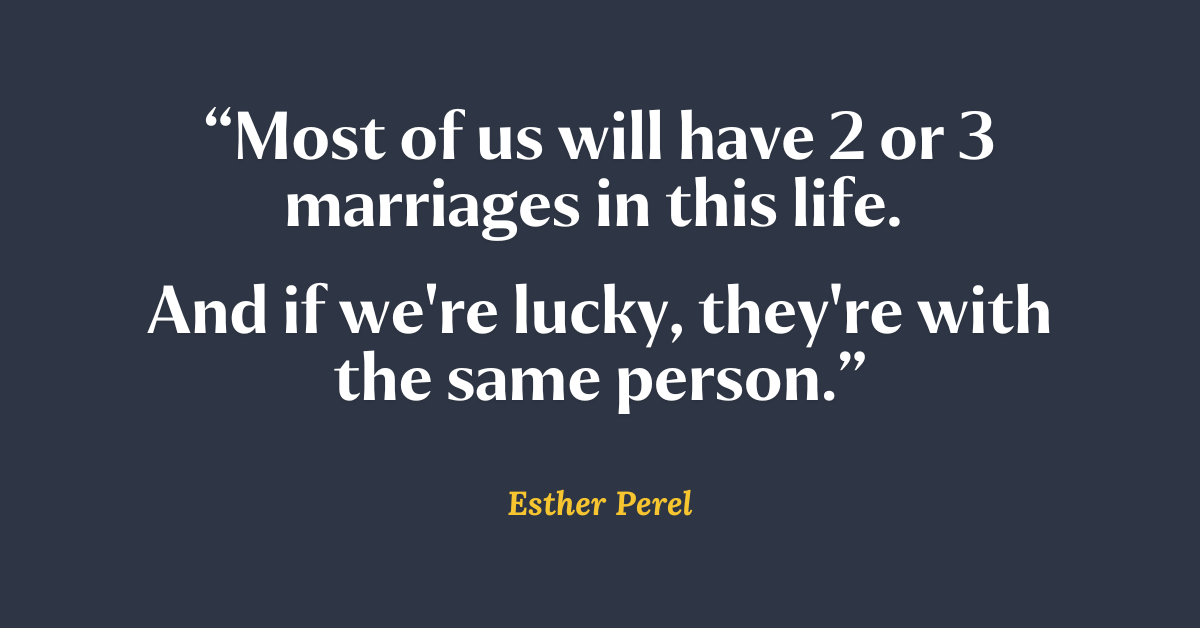Repair
To build the strongest relationship, this is how you approach repairing the cracks from time to time.
Knowing how to repair is a key skill in building strong, long-term relationships.
It’s a process of humility, admitting mistakes, taking accountability, and ultimately trying to do better, especially when it’s difficult.
It’s also a real gift! True repair requires everyone to be committed to doing better, which is a beautiful thing.
Sometimes it’s best to walk away than rebuild some relationships, but sometimes there are those humans you want to keep around! These are some practical ways to build back better with a simple conversational approach.
The Repair Conversation
It may take more than one meeting or conversation. Depending on the circumstances, the relationship repair process could take weeks, months, or years (if longer) to rebuild and will require a strong baseline of friendship or respect to be truly effective, but here is a general framework to guide you on your re-trust re-pair journey.
1) Come calm: Make sure to show up (as much as possible) in a state of rest and digest
If you’re in a stress response, the conversation is far more likely to turn into a confrontation. Calm is so important for many other reasons (some of which I discuss here and here). If you show up as calm as you can, your chances of turning conflict into connection increase significantly because what matters in relationships is getting the first three minutes right.
2) Aligned expectations: Meet when both people know what they’re walking into
Everyone must have context for the conversation they’re about to have. Being blindsided is a recipe for stress response, which, once again… leads to confrontation! And our goal is to get into connection. :) If you’re having a repair conversation, something happened that you (or they) regret, so it should be fairly easy to communicate that’s the kind of conversation you want to have.
3) Lead with curiosity: Hear what the other person has to say first
By leading with questions, you’re less likely to jump into criticism, which is a sure-fire way to achieve confrontation over connection. I have a zero percent success rate at reading minds. Every time I ask questions to gain context, I learn something new.
4) Stick to what you know is true: Choose kindness and your perspective
Criticism and blame are toxic in relationships and should be avoided. Stick to your feelings and perspective — it will keep your focus on connection.
5) Hear the hard stuff: Like really hear it. It’s so important to understand the impact of your actions
Whatever happened, you need to listen and really hear how it negatively impacted someone you care about. This could be a one-way or a take-turns sharing process of really listening to each other, but it should never be interrupted. This could be incredibly difficult to be on the receiving end (once again, why #1 of being calm is necessary), but it’s essential to learn from our mistakes and also the harm we could have caused.
6) Take accountability: Some of the most powerful words are “I’m sorry” and follow it with action
Whether this is apologizing or acknowledging, everyone plays a part in how relationships unfold. By taking accountability, we’re not only healing the situation, we’re building a deeper connection.
7) Commit to a new beginning: The old version of your relationship is over. Start a better one
If something truly damaging occurred, where trust was deeply ruptured, there’s no way to come back to the previous version of your relationship. What you’re building in this repair conversation is new. You both need to commit to a new beginning of your relationship. It’s a similar sentiment to:
8) Make a new plan, together: Think and act like a team, again
If something went wrong that you don’t want to happen again, I would suggest each of you come up with 1-2 suggestions on how to prevent this from happening again. In a low-stakes situation, it can be as simple as, “Can you please text me 30 minutes in advance if you’re running late?” A little bit goes a long way.
9) Let it go: Forgiveness heals both of you
This one’s tough. But for relationships to evolve and feel good, we need to give people the benefit of the doubt. We need to let the past be in the past and try to give someone a clean slate every day.
We’re all trying our best.
The longer and stronger the relationship, the more repairs you’ll get to do. Go forward and repair in good faith, knowing the new connection you build will be so much better.




